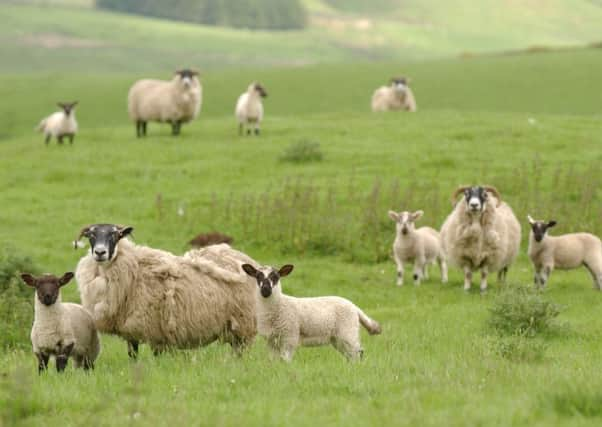Are ewe ready to embrace hill farming of the future?
This article contains affiliate links. We may earn a small commission on items purchased through this article, but that does not affect our editorial judgement.


Speaking at an open day at Scotland’s Rural College (SRUC) hill farms at Crianlarich, Professor Davy McCracken advised farmers to invest in livestock handling kit that would both make life easier and more profitable.
Although some might jib at spending £3,000-£4,000 pounds for weigh crates and livestock-moving conveyors suitable for the average-sized hill unit, he insisted they would soon repay the outlay.
Advertisement
Hide AdAdvertisement
Hide Ad“There are a lot of performance benefits from being able to put animals through a conveyor belt system,” he claimed, adding that the equipment installed at the SRUC hill farm had already provided financial benefits worth “pounds per ewe” after only a couple of years.
One of the pluses of this system came from each sheep now having to carry an electronic identification ear tag. “This gives hill farmers the information they need to improve productivity. They can now manage their flock as individuals and then manage these individual sheep according to their needs.”
As an example of the benefits arising from breaking down the information to single sheep level, he said it could show which animals should be culled and which should be kept for breeding. Prior to electronic tagging, this level of information was not available.
The arrival of conveyor belt livestock handling equipment onto the market had reduced labour costs. Prior to its availability, sheep handling was a job requiring lots of physical effort.
“Now, you do not need to be big and strong to carry out routine jobs such as dosing lambs,” said Prof McCracken. “Working the pedal or handle bringing lambs forward leaves you free to ensure the correct dose is applied or the ear tag checked for information,” he told his audience.
The push for better productivity from the hills through technology was already being taken up by farmers, with a “growing majority” now looking for solutions to the many challenges they faced.
He dismissed a recent suggestion by a top politician that the hills were for breeding butterflies and nothing else. “If you do not have livestock, you will not have butterflies,” he said.
